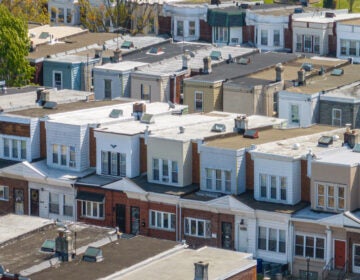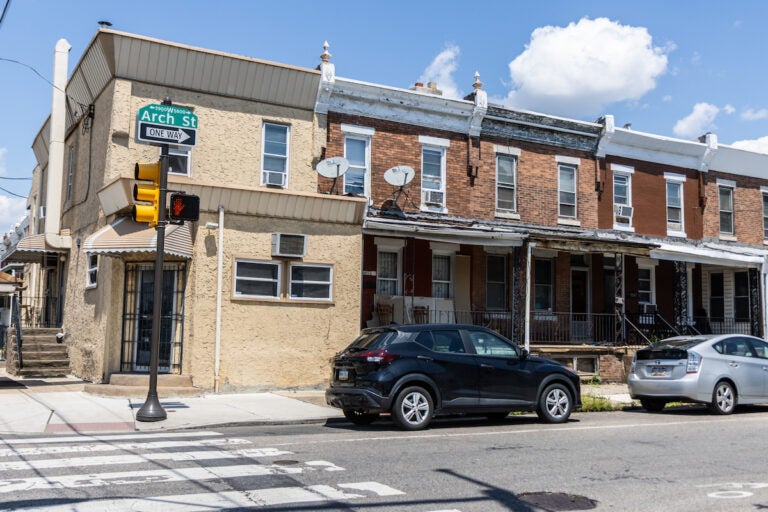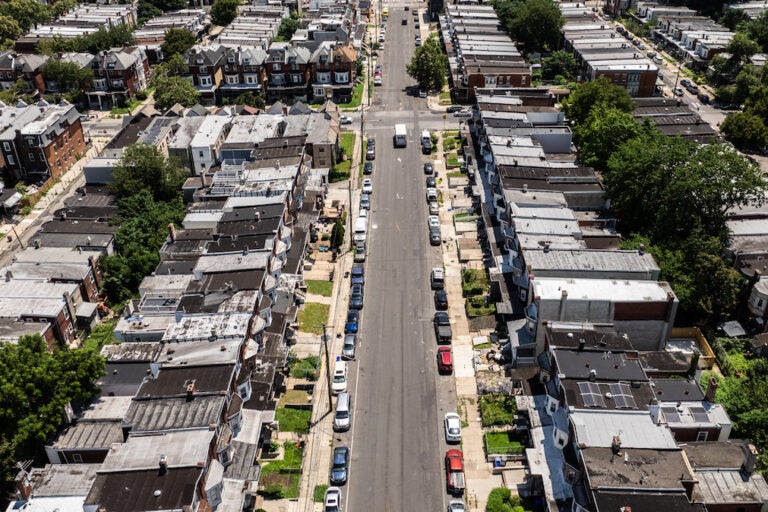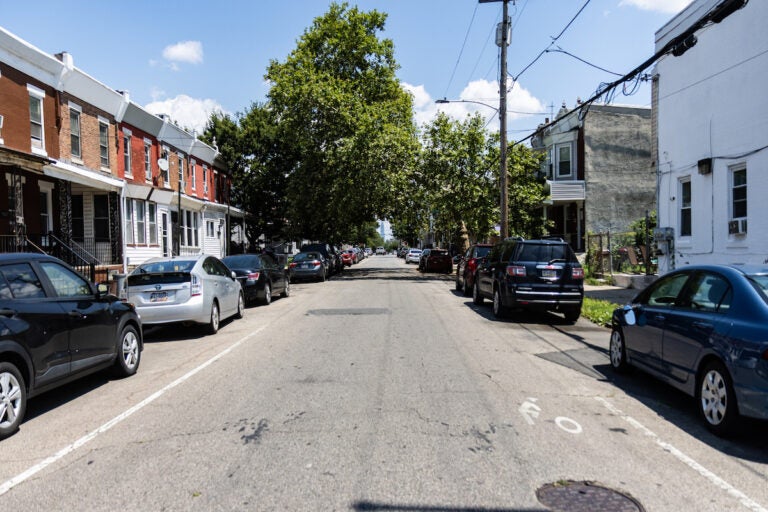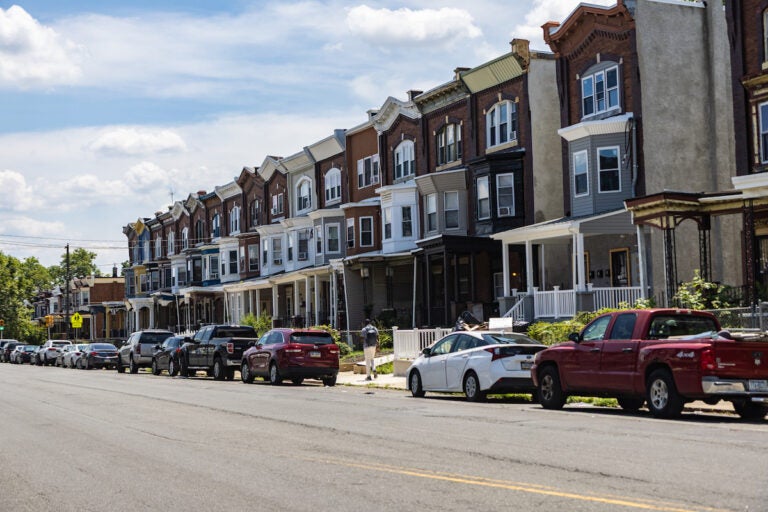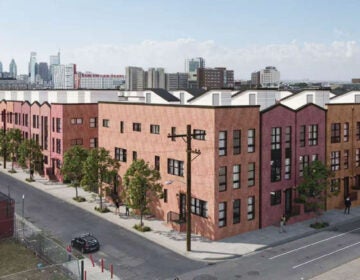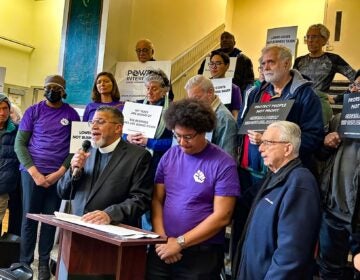‘We have a year’: Thousands of Philly renters could be displaced without deal to preserve affordable units
A private developer wants to sell his vast portfolio. City Councilmember Jamie Gauthier is pushing for the city to buy it.
Have a question about Philly’s neighborhoods or the systems that shape them? PlanPhilly reporters want to hear from you! Ask us a question or send us a story idea you think we should cover.
Over two decades, private developer James Levin assembled a real estate empire of sorts in West and Southwest Philadelphia, building and rehabilitating hundreds of properties across those neighborhoods to offer as affordable rentals.
Now Levin is selling his vast portfolio, a decision that could have a ripple effect on the entire city given its size and the number of renters relying on it to keep a roof over their head.
At least 3,000 people live in Levin’s buildings. And many, if not all, could be forced to move if those units were to become market rate under new ownership.
The loss of these homes would also shrink the city’s already limited supply of affordable housing amid an ongoing crisis.
“We have a year to figure this out and to stop 3,000 people from being displaced with no immediate solution,” said City Councilmember Jamie Gauthier, whose district is home to the majority of the properties.
Gauthier knew this day was coming, and she’s now determined to find a way to maintain the affordability of as many of these homes as possible.
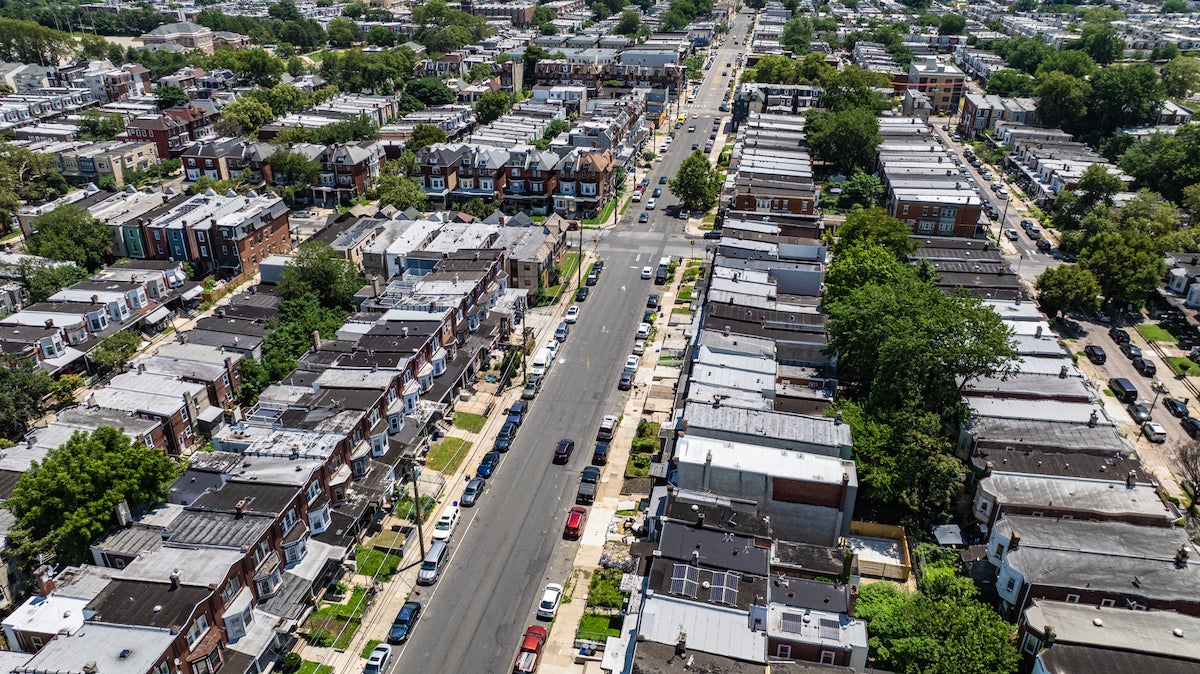
She’s already discussed the situation with Mayor Cherelle Parker’s administration, which is preparing to launch its signature housing plan. And Gauthier has a series of stakeholder meetings on her calendar next month — with the goal of trying to put forth a competitive bid for Levin’s properties.
“He is giving the city an opportunity to be the one that comes to the table with a solution that keeps these affordable. I don’t think for Jim that means he’s not gonna sell to anybody else,” said Gauthier.
Levin did not respond to multiple requests for comment.
What’s in the portfolio?
His company, Neighborhood Restorations, has developed more than 600 affordable properties in West and Southwest Philadelphia. Those properties, which date back to the early 1990s and 2000s, contain a total of 925 units, many of which are single-family homes.
The “scattered site” portfolio also includes duplexes and triplexes, as well some small apartment complexes.
A number of the properties are in communities experiencing gentrification, with property values on the rise.
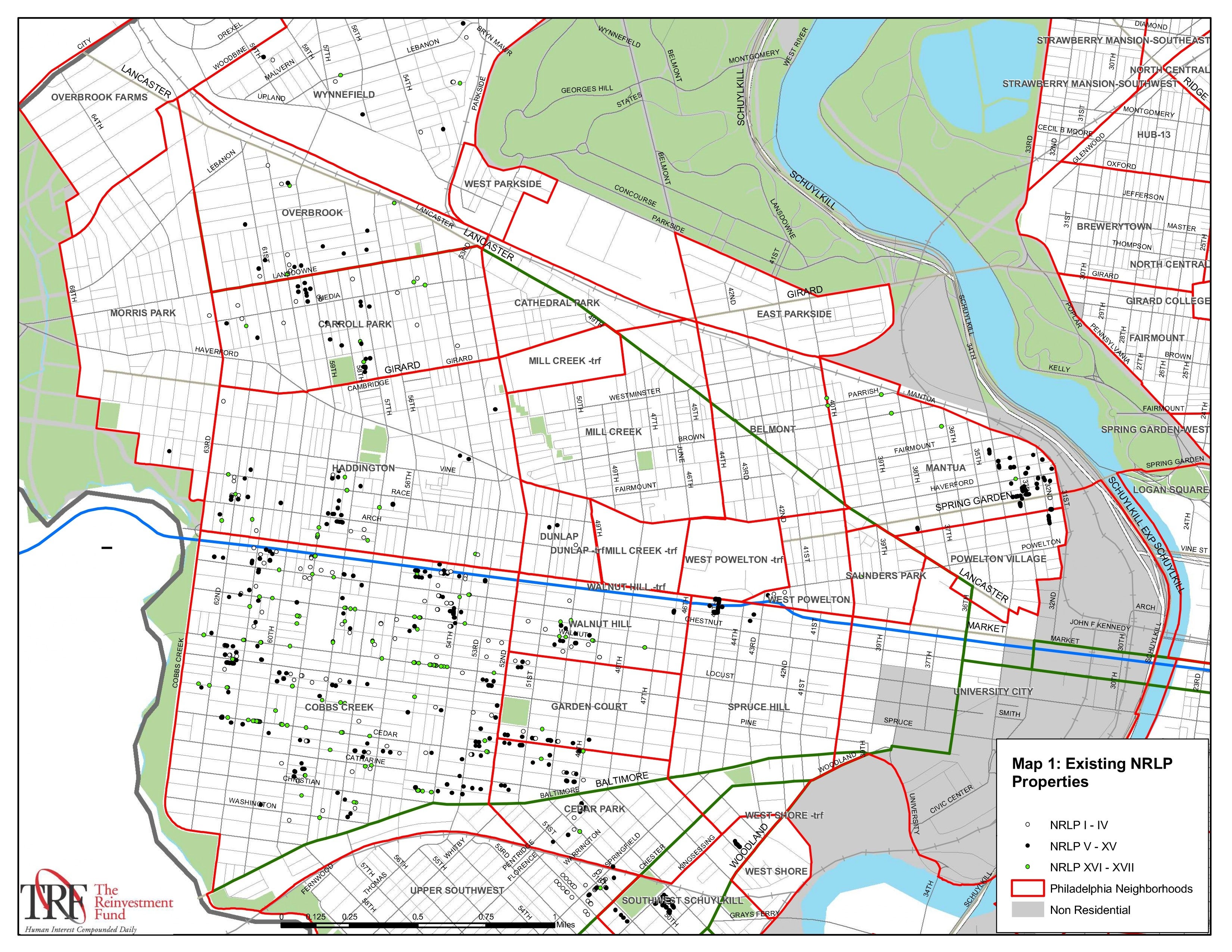
In a part of Cobbs Creek near 63rd Street, for example, property values jumped dramatically between 2000 and 2024, according to data from the Reinvestment Fund. The average home sale price increased from $29,803 to $170,980.
During the same stretch, home prices have tripled in the ZIP codes composing the catchment area for Henry C. Lea Elementary School, which covers parts of Walnut Hill and Cedar Park.
And while prices remain below the city median, some housing advocates are concerned that property values will skyrocket near Lea the way they did inside the catchment area for the Penn Alexander School in University City, which sits immediately next door.
Both schools have a partnership with the University of Pennsylvania.
“I expect a similar sharp increase in home values, the conversion of multifamily housing into single-family housing, and the loss of affordable housing options over time,” said Penn assistant professor Akira Drake Rodriguez, who compiled the data.

All of these properties were developed using federal Low-Income Housing Tax Credits awarded through a state-affiliated agency. The construction subsidy is a prime example of government-backed affordable housing, a segment of the market that accounts for thousands of low-income units in Philadelphia.
In exchange for the tax credits, LIHTC properties must remain affordable for a set period of time. Federal law generally requires these units to be rent-restricted, and only available to low-income tenants, for at least 30 years.
Such projects usually require rents to be affordable for households earning up to 60% of the area median income, a statistic that includes places beyond Philadelphia. That translates to $71,640 for a family of four.
When LIHTC restrictions expire, a property owner can choose to keep the units affordable or sell them to an affordable housing developer. But they may also cut a deal with a buyer who plans to make the units market rate, a route that typically yields higher profits.
The affordability restrictions on some of these homes have already expired. Starting in 2026, the same will happen to chunks of the portfolio each year through 2037.
“From a government perspective, there’s a clear opportunity to be proactive in thinking about what the future of these properties look like,” said Vincent Reina, director of the Housing Initiative at the University of Pennsylvania.
Can a deal get done?
Tenants who spoke with WHYY News said they hope the city seizes on that opportunity, including a home health aide who rents a two-bedroom rowhouse from Neighborhood Restorations in West Philadelphia.
Her monthly rent is $1,000, a rate she said fits comfortably within her budget. The total also enables her to keep a work schedule that gives her time to look after her 7-year-old son.
If her property becomes market rate next year, she fears she wouldn’t be able to maintain that balance given how high the rents are in the rest of her neighborhood.
“It would be hard because, right now, I can barely even work the hours I work right now,” she said. WHYY News is withholding her name due to privacy concerns.
While the clock is ticking, Gauthier is optimistic she can help broker a deal that will keep Levin’s buildings affordable going forward.
Under a law passed by City Council in 2023, owners of government-subsidized properties must give tenant organizations, affordable housing providers and the city 45 days to bid on the properties before they can be publicly marketed for sale.
The measure, sponsored by Gauthier, also gives those entities the opportunity to match any market-rate offer made to property owners.
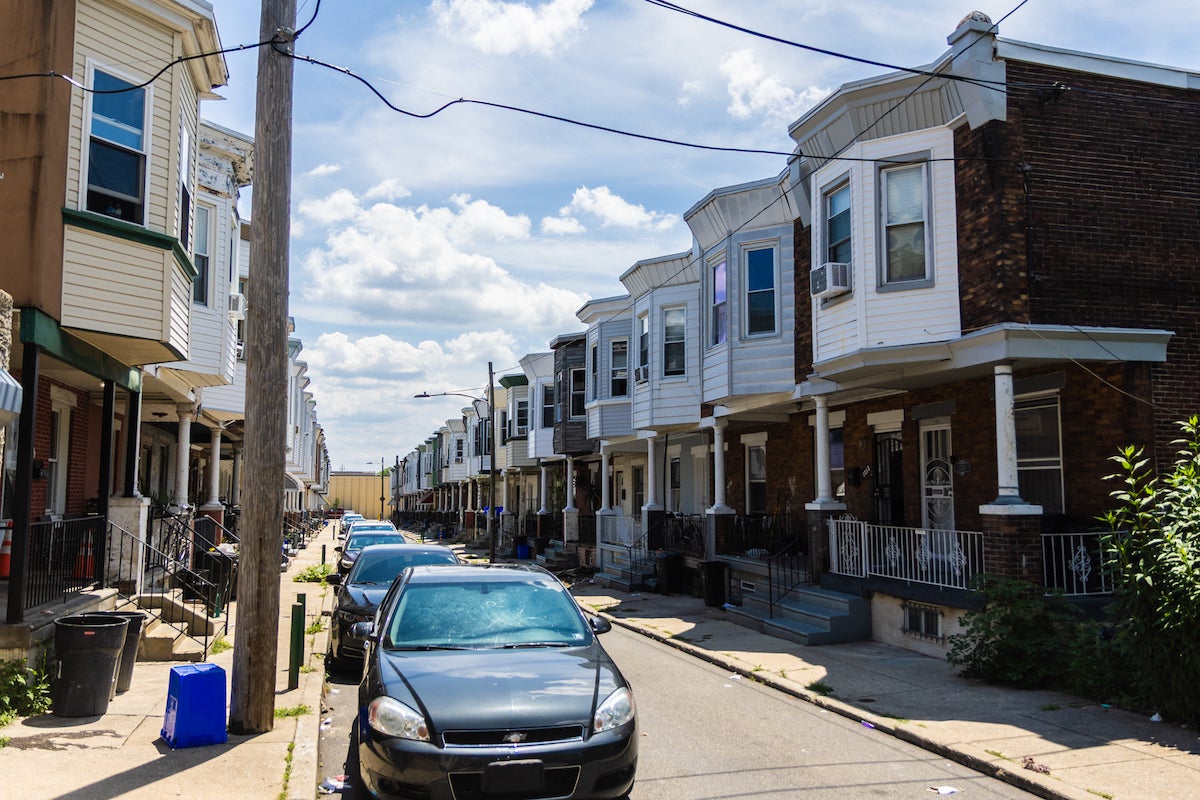
At the same time, the Parker administration is preparing to borrow $800 million in bonds for the Housing Opportunities Made Easy, or H.O.M.E., initiative, a multipronged effort rooted in creating and preserving 30,000 units of housing.
Those dollars are expected to support more than three dozen programs, including a rarely used acquisition fund launched under former Mayor Jim Kenney, which was created to purchase occupied apartment buildings or land to increase affordable housing in the city.
Under H.O.M.E, Parker has proposed allocating $5 million to the fund, according to documents shared by her administration. The initiative’s first program statement and budget, which must be approved by City Council, is expected this fall.
A mayoral spokesperson did not respond to a request for comment.
“If we wanted to do this, we could do it. And it’s a situation where it’s not just the city, right? This is certainly a worthy cause for a wealthy institution that might want to help with affordable housing in West Philadelphia, and anybody else who wants to be at the table,” said Gauthier.

Subscribe to PlanPhilly
WHYY is your source for fact-based, in-depth journalism and information. As a nonprofit organization, we rely on financial support from readers like you. Please give today.





